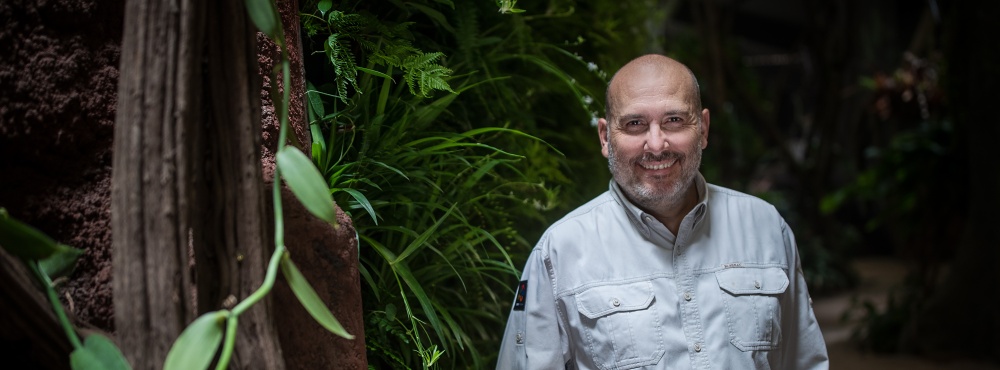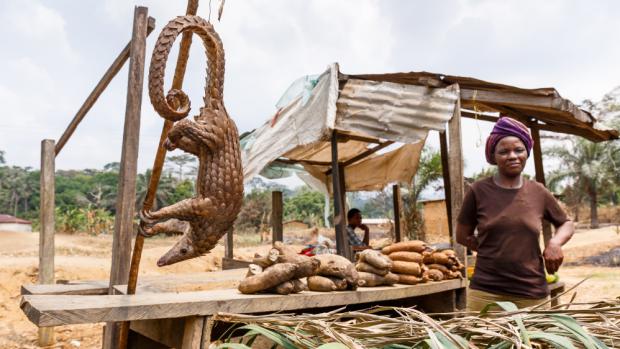Valentine’s week with pangolins

As I write this column, the plane’s flight attendants are handing out heart-shaped sweets and greetings cards. Happy Valentine’s Day!
 Photo: Miroslav Bobek, Prague Zoo
Photo: Miroslav Bobek, Prague Zoo
Google, by contrast, celebrates Valentine’s Day with pangolins. But I’m running ahead of myself as World Pangolin Day is always celebrated on the third Saturday of February, February 18th this year. It was, however, a good idea to combine St. Valentine’s Day with pangolins, as it may help raise awareness about these unique mammals and even bring some means for their protection.
Google, in its "doodle" and the associated interactive game, presents a pair of pangolin lovers. One is red, the other blue - what else on Valentine’s Day - and they walk on two legs, but their body shape and, in particular, the characteristic scales, even in an artistic nutshell, correspond to reality. However, there is a very dark reality behind the love story of the Valentine’s Day interactive game.
For a long time now, the pangolins living in tropical Africa and South Asia have been the most illegally traded animals on the planet. It is estimated that about a million were killed in the last decade. Nor would it surprise me if the reality was even worse.
Just two weeks ago, there was news that the Thai Coast Guard seized a shipment of three tons of pangolin scales, probably originating in the Congo. Three tons of scales would fetch about ten million dollars on the black market. Above all, however, they cost the lives of thousands and thousands of pangolins.
Pangolin scales are used in traditional medicine, especially Chinese. In this regard, the pangolin is in a similar situation to the rhino. In addition, their meat is unfortunately prized as a delicacy, both in Asia and in Africa.
Recently, a certain businessman boasted on the Chinese social network Weibo that he had dined on cooked pangolin at a private dinner. He said it was very tasty. What he didn’t realise was that nowadays in China you can face up to ten years in prison for this.
Fortunately the situation is gradually changing and, in this regard, Google’s Valentine’s campaign is just the tip of the iceberg. The trade in pangolins has been placed outside of the law and attempts to preserve them are intensifying. Some very innovative methods are being used in the fight against poachers, traffickers and smugglers. Huge rats are being specially trained to sniff out pangolins or their scales.
Despite this, I fail to feel overly optimistic. In a few hours we land in Cameroon and I’m afraid that once again I’ll see the same thing I’ve seen many times. Dead pangolins wrapped in bags along with the corpses of other poached animals. Bags of their scales seized from traffickers and dying pangolins hanging from road-side stands.
If I still remember the Valentine’s Day pangolins, they will look like they’re from another world. But it doesn’t matter. Their role was to support the same endeavours that, for example, the Czech organisation Save Elephants or Prague Zoo contribute to: efforts to protect African wildlife and restrict illegal hunting, from elephants via gorillas to pangolins.
ZOOPRAHA.CZ
Contacts
- The Prague zoological garden
U Trojskeho zamku 120/3
171 00 Praha 7
Phone.: (+420) 296 112 230 (public relations department)
e-mail: zoopraha@zoopraha.cz
Others








